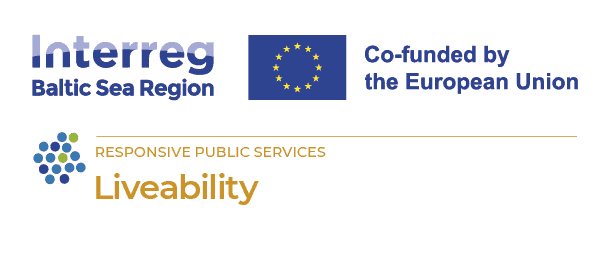
Empowering Neighbourhood Associations – Riga, Latvia
26 June 2025
The Riga pilot focuses on finding solutions to improve collaboration and trust between the municipality and local neighbourhood communities.
This includes two steps:
1) Developing a neighbourhood project co-design system.
2) Improving the system for financing local development and creating strategies that reflect the needs and aspirations of the community (based on a community-led local development approach).
WHY | Purpose
There is a strong neighbourhood movement in Riga, with many active community members. However, this community resource and its capacity for activism are limited due to financial and personal reasons, most activities are done pro bono.
One of the aims of this pilot project is to create an environment where neighbourhood associations can become partners (co-designers) alongside the municipality. By providing more tools, methods, and opportunities for greater independence, these associations can play a more active role in shaping the development and well-being of their neighbourhoods.
By incorporating Public Interest Design (PID) principles and a community-led approach into the project activities, the Riga pilot aims to create a more inclusive, sustainable, and community-driven model for developing and strengthening neighbourhoods.
HOW | Field of Action
- Implementing bottom-up planning mechanisms to give residents a more significant role in decision-making processes regarding their neighbourhoods.
- Mapping local stakeholders to identify key actors and potential contributors.
- Facilitating networking among stakeholders to establish strong and cohesive local partnerships.
- Organising workshops focused on co-design and community-led local development.
- Conducting informative seminars to share knowledge and best practices among stakeholders.
- Organising field trips and urban dives to provide practical insights, strengthen understanding, and enhance knowledge.
WHO | Actors
NGOs:
- Avoti Neighbourhood Resident Association
- Grīziņkalns Neighbourhood Resident Association
- Riga Neighbourhood Alliance
Public Sector:
- Riga City Council specialists
Indirect Stakeholders:
- Other larger municipalities
- Regional NGOs
- Relevant ministries
Lessons learnt
- Visions and decisions are influenced not only by city-wide challenges, but also by personal experiences of individual community members. It is important to recognize that representatives of neighbourhood associations are not compensated for their input and activism. If the city aims to strengthen local communities. There must be provisions for additional financial support, including coverage of administrative costs.
- Discussions and actions do not happen immediately. Trust between stakeholders is developed gradually, and over time, they gain deeper knowledge and understanding of the relevance of the issues.
- While the municipality shows interest in transferring decision-making power to communities, it remains unclear whether communities are currently willing and capable of taking on additional responsibilities and duties.
- The Community-Led Local Development (CLLD) tool is not yet available for urban areas in Latvia during this planning period. However, the potential implementation of this approach is also relevant for other state cities. It is essential to develop strong arguments supporting the adaptation of this approach in urban areas at the national level, as this can help accelerate the process of change.
Potential follow up activities
The focus of future activities is on developing the Community-Led Local Development (CLLD) approach both in Riga, and in other municipalities across Latvia. This includes follow-up meetings with involved stakeholders, local strategy development training for neighbourhood activists, and study visits integrated in the final conference.
There is also potential for international exchange and visits to observe good practices in European cities that are implementing or planning to implement the CLLD approach.
Poster download: LBY_Testbeds Poster_Riga_June 2025
Interactive map showing pilot locations. Use the arrow keys to move the map view and the zoom controls to zoom in or out. Press the Tab key to navigate between markers. Press Enter or click a marker to view pilot project details.





